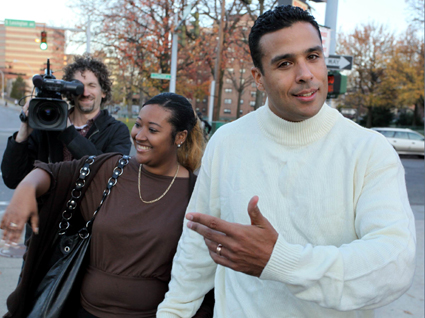Innocence Project and Brooklyn Pol Unite for DNA Reform

Conviction%20Thrown%20Out_Thom%283%29.jpg
Exonerated Man From Brooklyn Law School Clinic Says New Legislation Lacks Meaning
NEW YORK — Leaders from the Innocence Project and the New York State Bar Association, saying the innocent should not be punished for crimes committed by others, this week called on state legislators to enact reforms that they say will “truly would reduce wrongful convictions and improve public safety.”